Data Analyst Jobs: Exploring data analyst jobs
Data analyst jobs means working with data so that businesses can make smart decisions. A data analyst collects numbers, arranges them, and studies them to find patterns or trends. Just like a small shop can hire you to see which product is selling the most.
You do not need to be a math genius or expert, you just need to have the passion to learn and interest in solving problems. Today and in the coming future, data analyst jobs are in great demand because companies are dependent on data for every decision. That’s why this career can be the best option for beginners.
Why Data Analyst Jobs Matter

Data analysts save companies lots of money, improve products, and help customers understand. These jobs pay well, offer growth, and give you a chance to work in interesting industries.
Why Beginners Can Succeed
You can become a data analyst through basic skills and free online tools. Many companies hire beginners and also provide training, so anyone can enter this career.
What Does a Data Analyst Do?
A data analyst converts raw numbers into useful information. He analyzes data using tools and creates reports or charts that make business easier to understand. In a normal data analyst role, you do the following:
Collect Data
You collect data from sources like sales records or customer feedback. Tools like Google Analytics (https://analytics.google.com/)help track website visitor data, which helps you figure out what’s working and what’s not.
Clean Data

Data contains errors, like missing or incorrect information. You fix them so that the data is reliable. (https://www.microsoft.com/en-us/microsoft-365/excel) Excel is a perfect tool for beginners to clean data.
Analyze Data
You study data and find trends, like if a store’s sales increase on weekends. Tableau’s guide teaches (https://www.tableau.com/learn/articles/data-analytics) you how to identify patterns in an easy way.
Create Reports
You share your findings by creating charts or reports. Just as a business can create a marketing plan from your charts, Power BI (https://powerbi.microsoft.com/) helps create visuals that are easy for everyone to understand.
Make Recommendations
You make suggestions based on data, such as an idea to boost sales if ads are increasing sales.(https://www.coursera.org/learn/data-analysis) Coursera’s data analysis course teaches how to recommend smart business decisions.
Why Choose a Data Analyst Career?

This career is best for beginners because the demand is high, the pay is good, and there is also the option of flexible work:
High Demand
Sectors like retail, healthcare and tech need data analysts. According to LinkedIn’s 2025 jobs report,(https://www.linkedin.com/pulse/linkedin-jobs-rise-2025-report) this is the fastest-growing career, which creates even more opportunities for beginners.
Good Pay
In the US, entry-level data analysts earn $50,000–$70,000 per year, and the salary increases with experience. (https://www.glassdoor.com/Salaries/data-analyst-salary-SRCH_KO0,12.htm)According to Glassdoor’s salary data, beginners also get quite good money.
Flexible Work

Many analyst jobs offer remote or flexible hours. Indeed, (https://www.indeed.com/q-Remote-Data-Analyst-jobs.html) remote roles are easily available so you can work from home.
Room to Grow
You can start as an analyst and become a data scientist or business analyst. (https://www.ibm.com/training/data-and-ai) IBM’s career guide explains how to advance in the data analytics field.
Beginner Friendly
You don’t need a degree. You can learn quickly with free tools and online courses. (https://www.datacamp.com/) DataCamp’s beginner courses are for people who are starting with zero experience.
Essential Skills for Data Analyst Jobs

To become a data analyst, you need some technical and some soft skills. All of this is easy for beginners.
Basic Math and Statistics
Understanding simple concepts like average, percentage is enough. (https://www.khanacademy.org/math/statistics-probability) Khan Academy’s statistics course teaches this in easy language.
Excel Skills
Excel is an essential tool for organizing and analyzing data. (https://support.microsoft.com/en-us/excel) Microsoft’s tutorials teach you how to use formulas and charts.
SQL Knowledge

SQL lets you find specific data within databases, such as sales records. (https://www.w3schools.com/sql/) W3Schools’ SQL tutorial is free and perfect for beginners.
Data Visualization
Creating clear charts is important. (https://www.tableau.com/learn) Tools like Tableau help create visuals and also offer free training.
Problem-Solving
You need to solve business problems, such as why sales dropped. (https://www.coursera.org/learn/problem-solving) Coursera’s course teaches critical thinking and smart solutions.
Tools Every Data Analyst Should Know
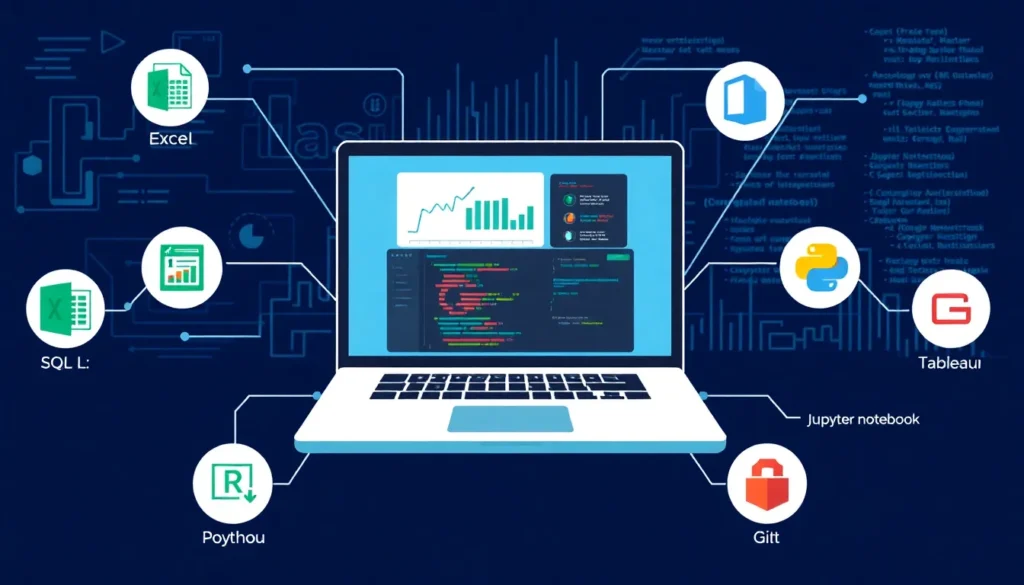
Data analysts use tools to make work easier. These tools are best for beginners and will remain relevant even in 2025 and in future.
Microsoft Excel
Excel is best for small datasets and quick analysis. (https://support.microsoft.com/en-us/excel) With Microsoft’s guides, you can master Excel.
SQL
SQL is a simple language that helps you extract exact information from the database. (https://mode.com/sql-tutorial/) Mode Analytics has a free course that teaches step by step, for complete beginners.
Tableau
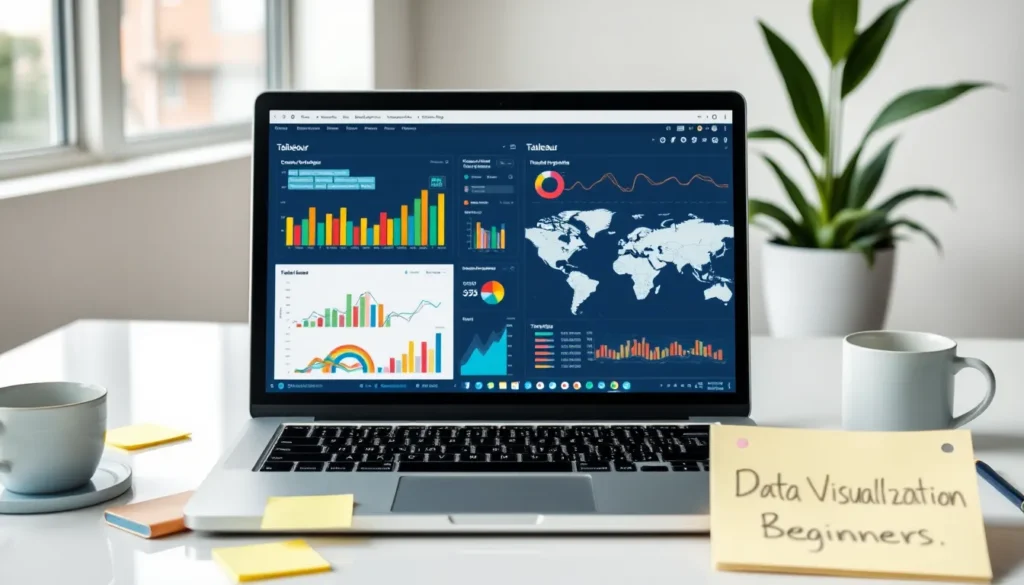
Tableau is a tool that lets you create colourful charts and dashboards like graphs that are easy to understand. (https://www.tableau.com/learn/training)You can learn them easily with free training.
Power BI
Power BI is also a tool that lets you show data in nice visuals. (https://learn.microsoft.com/en-us/power-bi/) You can learn to use it without any tension with Microsoft’s easy tutorials.
Python or R
Both these programming languages are for slightly advanced work. (https://www.codecademy.com/learn/learn-python-3) Python is a little easy for beginners. Codecademy’s course is a good starting point.
How to get your first data analyst job

If you are completely new, don’t worry. Follow these steps and you will be on your way to becoming a data analyst:
Learn Basic Skills
Do online courses to learn skills like Excel, SQL, and making data charts. (https://www.coursera.org/professional-certificates/google-data-analytics) Coursera’s Google course is best for beginners.
Build a Portfolio
Make some sample projects like checking sales data of a store. (https://www.kaggle.com/) Free data is available on Kaggle for practice.
Update Your Resume
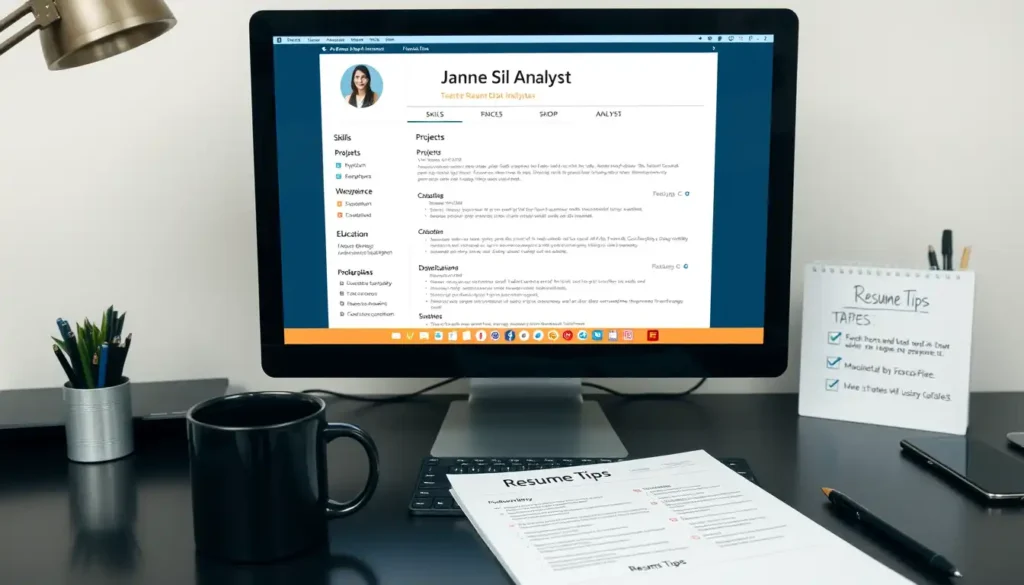
Write your skills and projects in a simple and clean way in your resume. (https://www.indeed.com/career-advice/resumes-cover-letters/data-analyst-resume) Indeed also has a resume guide that explains the format.
Apply for Entry Level Jobs
Search for “junior data analyst” or “intern” type jobs on LinkedIn. (https://www.linkedin.com/jobs/) Companies hire people who know how to use basic tools.
Prepare for Interviews
Practice basic questions like “How do you clean data?” (https://www.monster.com/career-advice/article/data-analyst-interview-questions) Monster website’s interview tips will help you answer with confidence.
Where will you find Data Analyst jobs?
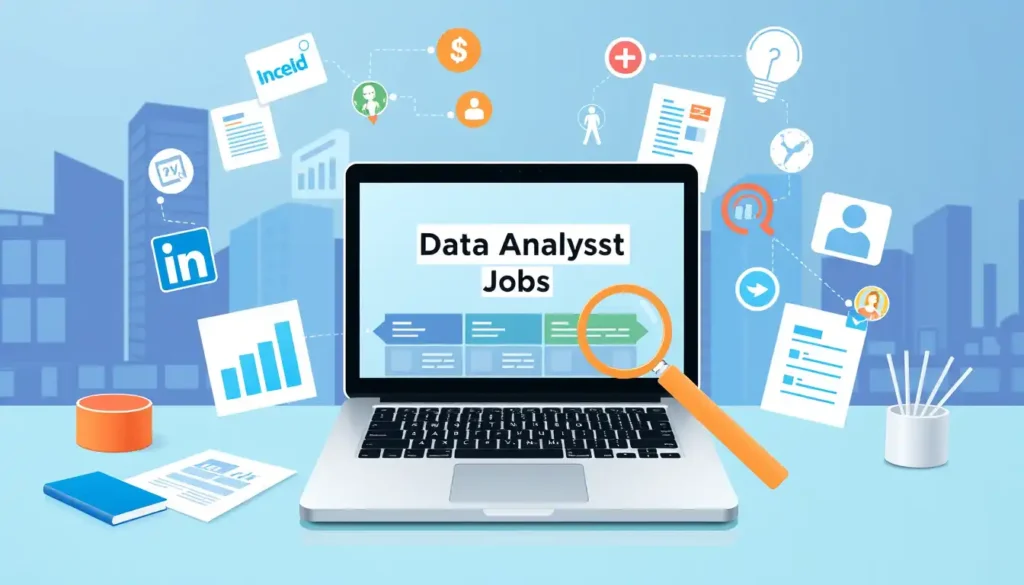
Several platforms list data analyst jobs for beginners. If you are looking for a job, try these websites:
There are thousands of jobs here, including remote (work from home) jobs. (https://www.linkedin.com/jobs/) Apply “Entry level” filter and keep your profile updated.
Indeed
Here you get salary idea along with jobs.(https://www.indeed.com/q-Data-Analyst-jobs.html) Easy search system which is best for beginners.
Glassdoor
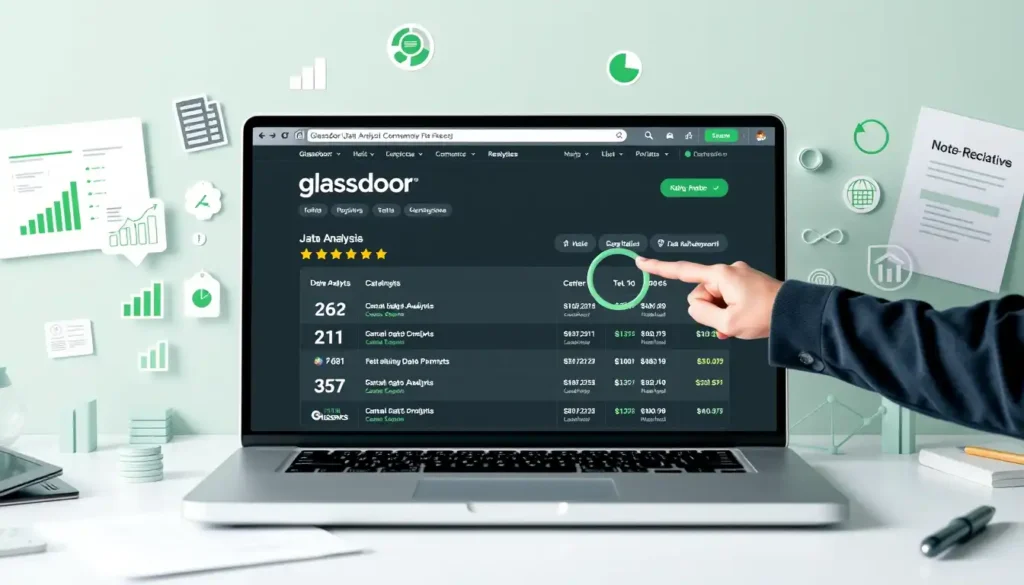
This site shows you both jobs and company reviews. (https://www.glassdoor.com/Job/data-analyst-jobs-SRCH_KO0,12.htm) Best place to find good companies.
Job Boards for Tech
Websites like Dice are specially made for tech jobs. (https://www.dice.com/) Here you will easily find entry level data analyst jobs.
Freelance Platforms
If you are looking for part time or short term projects, try Upwork. (https://www.upwork.com/) Small companies or startups hire new people here who can use basic tools.
What to do after getting a job?

If you have got a job, then follow these simple tips so that you perform best in your work:
Keep Learning
Technology keeps changing all the time. (https://www.datacamp.com/blog) DataCamp’s blog and short courses keep you updated with new tools and tricks.
Explain in a simple way
When you are explaining a report or data, explain it in a way that even non technical people can easily understand. (https://blog.hubspot.com/marketing/data-storytelling-tips) HubSpot’s guide will help in this.
Connect with other professionals

Connect with people on LinkedIn or Reddit who are already working in the data analyst field. (https://www.reddit.com/r/dataanalysis/) Networking gives you new job ideas and a chance to learn.
Practice on Real Data
Free data is available on websites like Kaggle use it and make small projects. (https://www.kaggle.com/datasets) This strengthens your skills and also increases your confidence.
Take feedback and improve
It is a good habit to take feedback from your boss or team. (https://www.coursera.org/articles/career-advice) Work on things that can be improved. Coursera’s career tips help you grow.
Common challenges (and solutions) faced by beginners

If you are new, you may face these challenges but don’t worry, there is a solution to every problem:
You may have trouble learning the tools
Tools like Sometimes SQL or Tableau seems a bit confusing. (https://mode.com/sql-tutorial/) But the Mode Analytics tutorial teaches you step by step in a very simple way.
Handling When there is a lot of data
You may feel a little scared at first after seeing big data. (https://support.microsoft.com/en-us/excel) Divide the data into smaller parts using Excel or Power BI everything becomes easy.
Staying Confident

Initially, you may feel that you do not understand everything. (https://www.reddit.com/r/dataanalysis/) But give it some time, practice on Kaggle and join forums like Reddit you will get motivation.
Time Management
When a lot of tasks come together, managing time seems tough. (https://trello.com/) Use tools like Trello work will stay on track.
Understanding Business Needs
Just understanding data is not enough you should also understand the company’s goals. (https://www.coursera.org/learn/business-analytics) Coursera’s business analytics course will help you match your work to your business goals.
Real World Examples of Data Analyst Jobs

Here’s how data analysts help small businesses succeed:
Retail Store
A small shop hired an analyst. He checked sales data using Excel and found that sales are higher on weekends. Then the shop ran offers on weekends and sales increased further.
Online Startup
The startup tracked its website traffic using Google Analytics. The analyst said to improve the layout a bit – people started to wait longer on the site.
Healthcare Clinic
The clinic collected patient feedback. The analyst said that taking appointments was confusing for people. The system was made a bit clearer and patient satisfaction increased.
The Future of Data Analyst Jobs For Today and in the future

The job of a data analyst is in great demand today and will grow even more in the future. Every company wants their decisions to be based on data. https://www.ibm.com/analytics) AI tools like IBM’s products are making analysis easy.
External Linking Sources
- Coursera: Data Analyst Career Guide. A clear and simple roadmap to becoming a data analyst.
- LinkedIn: Data Analyst Jobs. Check back regularly for fresh job openings.
- Tableau: Data Analytics Basics. If you want to get a basic understanding of data analysis, this is the perfect starting point.
Conclusion
Data analyst jobs are a rewarding career for beginners in which demand is high, pay is good, and work can be flexible. By learning basic skills like Excel, SQL and data visualization, you can get an entry-level job. Use free tools, create a portfolio and apply on platforms like LinkedIn and start your career!
FAQ’s
1. What does a data analyst do exactly?
A data analyst collects, cleans, and interprets data to help businesses make informed decisions. They often use tools like Excel, SQL, and Python for analysis and reporting.
2. Can I make 200K as a data analyst?
Yes, but it’s rare—this usually requires working in top tech companies or transitioning into more advanced roles like data scientist or analytics manager.
3. What qualifications do I need to be a data analyst?
A degree in a quantitative field (like statistics or computer science) and skills in data tools (Excel, SQL, Python, Tableau) are typically required.
4. How much does a data analyst make in Jordan?
Salaries in Jordan range from JOD 7,000 to 18,000 annually, depending on experience, industry, and company size.
5. Can I be a data analyst with no experience?
Yes, you can start by learning essential skills, building a portfolio with personal projects, and applying for entry level or internship roles.
6. Is a data analyst a stressful job?
It can be, especially with tight deadlines or unclear business goals, but it’s generally considered less stressful than many tech jobs.



Pingback: Entry Level Construction Jobs: Start Y0ur Career Now